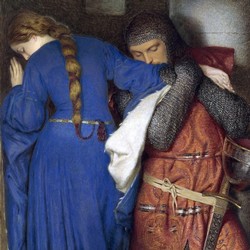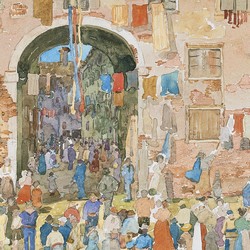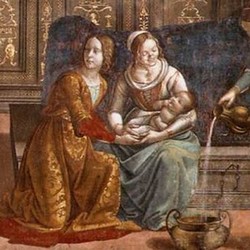- Details

We say Schumann and Heine and think of Dichterliebe. It's understandable, because Dichterliebe is the composer's best-known cycle, but it is neither the only nor the first cycle by Robert Schumann with poems by Heinrich Heine. The first one is the Liederkreis, which, as I told you a few years ago when I presented it, was also the first cycle he composed (needless to add that it was 1840) and the first work for voice he published. A few days ago, I thought I hadn't listened to it for a while, as much as I [...]
- Details

If I tell you that I'm talking about melodramas in this article, you might think about Douglas Sirk's films or Wilkie Collins' novels. But that's not the point; the melodrama I'm talking about is the piece in which a spoken declamation is accompanied by some music written for that text, in order to enhance the dramatic potential of the voice of the actor or actress. Because, in this case, we're not talking about singers; at least, in theory, because in practice, the thing is quite ambiguous.
- Details

My dearest, I send you this music postcard from the city where I'm spending my holiday.
I always try to pick a song that gives you a clue about the place; it was difficult other years, but this time there was plenty to choose from, because it caught the attention of many writers of the Romanticism (i fact, of many artists of every time). For example, Irish poet Thomas Moore dedicated some poems to the city after visiting it in 1819.
- Details

The aim of serenades is seduction, but it's not unusual that, in Art Song context, they are somehow sad. For example, in a well-known serenade, Schubert's Ständchen, the music of the third, last stanza makes us think (always depending on the interpreters) that there is more distance between him and her than he would wish. Another example of a sad serenade, maybe more obvious, is the one I'm proposing today, Des Abends kann ich nicht schlafen gehn by Johannes Brahms.
- Details

When Das Marienleben was premiered, in June 1923, Paul Hindemith was twenty-seven. He wasn't unknown, either as an interpreter or as a composer, at least among the connoisseurs. Schott had been interested in his music a few years ago, and the publisher and the composer had just reached an agreement that guaranteed Hindemith a monthly allowance. This regularity of income would allow him to leave the concertino place at the Frankfurt Opera, which he had rejoined after the war [...]













